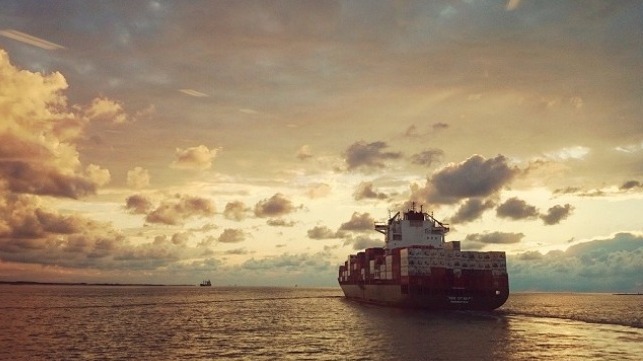BIMCO: Ukraine War Will Slow Growth, Hurting All Shipping

While much of the focus to date has been on the near-term impact to the tanker and bulker markets from Russia’s invasion of the Ukraine, shipowners’ association BIMCO is looking toward the wider analysis indicating that it sees the potential for sustained spill-over impacting the global economy and all sectors of the shipping industry. While saying that the full impact of the war is likely a ways off, BIMCO is looking at the impact on consumer confidence and the global economy pointing out despite longer-term contracts having already been set for 2022, that the war will likely lower growth prospects and be the factor to finally reduce demand after a year and a half surge in volumes related to the pandemic.
“The National Institute of Economic Research in the UK has estimated that the war could reduce global GDP growth by as much as one percentage point,” says Niels Rasmussen, Chief Shipping Analyst at BIMCO. “No matter the specific Russia and Ukraine export developments, this will hurt growth projections for all shipping sectors.”
Near-term the obvious impact has been on shipping from the Black Sea region, where Ukraine and Russia export a broad range of commodities. Rasmussen points out that the two countries combined hold a global market share of more than 10 percent within coal, wheat, and maize. Of particular concern to global supply, he says is the export of wheat and maize, which is mainly loaded in the Black Sea.
“It is difficult to imagine that what is left of Ukraine’s 2021 harvest will be shipped any time soon and, depending on developments, the 2022 harvest may also be hit,” says Rasmussen. “How much of Ukraine’s export can be replaced by export from other countries remains to be seen, but to the extent that it is possible it could lead to increased tonne miles demand.” While none of the commodities are currently sanctioned, BIMCO believes that the Black Sea exports are at a higher risk of seeing disruptions due to the lack of shipping companies’ willingness to serve the area and/or increasing shipping costs.
Further adding to the near-term concerns is the fact that Russia controls about 10 percent of all seaborne exports of both crude oil and refined products. BIMCO highlights that the majority of the oil products are exported from Black Sea ports, while Russia’s coal also comes from its Pacific ports.
While the energy products so far, despite pressures in the EU and U.S., are not included in the sanctions, BIMCO reports that European buyers appear to be shying away from Russian crude oil. “It is being reported that as much as 70 percent of crude exports do not have a buyer despite being heavily discounted,” says BIMCO while speculating that China could emerge as a buyer from Russian crude, which would help alleviate some of the current global supply concerns. The EU could buy more oil from the Middle East if China takes up the Russian supply.
“The global economy is already suffering from increased commodity prices,” writes Rasmussen. “Oil, wheat, and maize are trading at decade highs, at least. This will fuel further inflation that in many countries is already at its highest level in memory.” Consumers are likely among the first to react to the higher prices, with Rasmussen foreseeing destruction in demand as consumers and businesses respond to rising prices.
Some segments of shipping are likely to have a less direct impact from the closing of ports and sanctions. While many of the container lines decided to suspend bookings to and from Russia and Ukraine, BIMCO highlights that neither is a key market for the liners. They believe there will be a loss of volume for some reefer trades, but “Considering the very high global demand, the developments in the two countries should not be much of a concern for container rates or demand.”

that matters most
Get the latest maritime news delivered to your inbox daily.
All segments of the industry, however, are experiencing increased shipping costs due to historically high bunker prices that will only further add to the inflationary pressure. BIMCO believes OPEC + sticking to its already planned increases and crude oil price futures indicate that oil prices will remain above $100 per barrel likely to cause demand destruction while supply shortages may also hurt the shipping industry.
“The impact of the war on the global economy and consumer confidence,” BIMCO concludes, “may weaken growth prospects.” While saying that the impact is likely some way off, BIMCO sees a weakening of growth prospects combined with high prices which it believes could lead to an earlier “return to normal,” from the current elevated demand levels. They, however, see one positive, noting that the slowing growth could ease congestion in ports.
